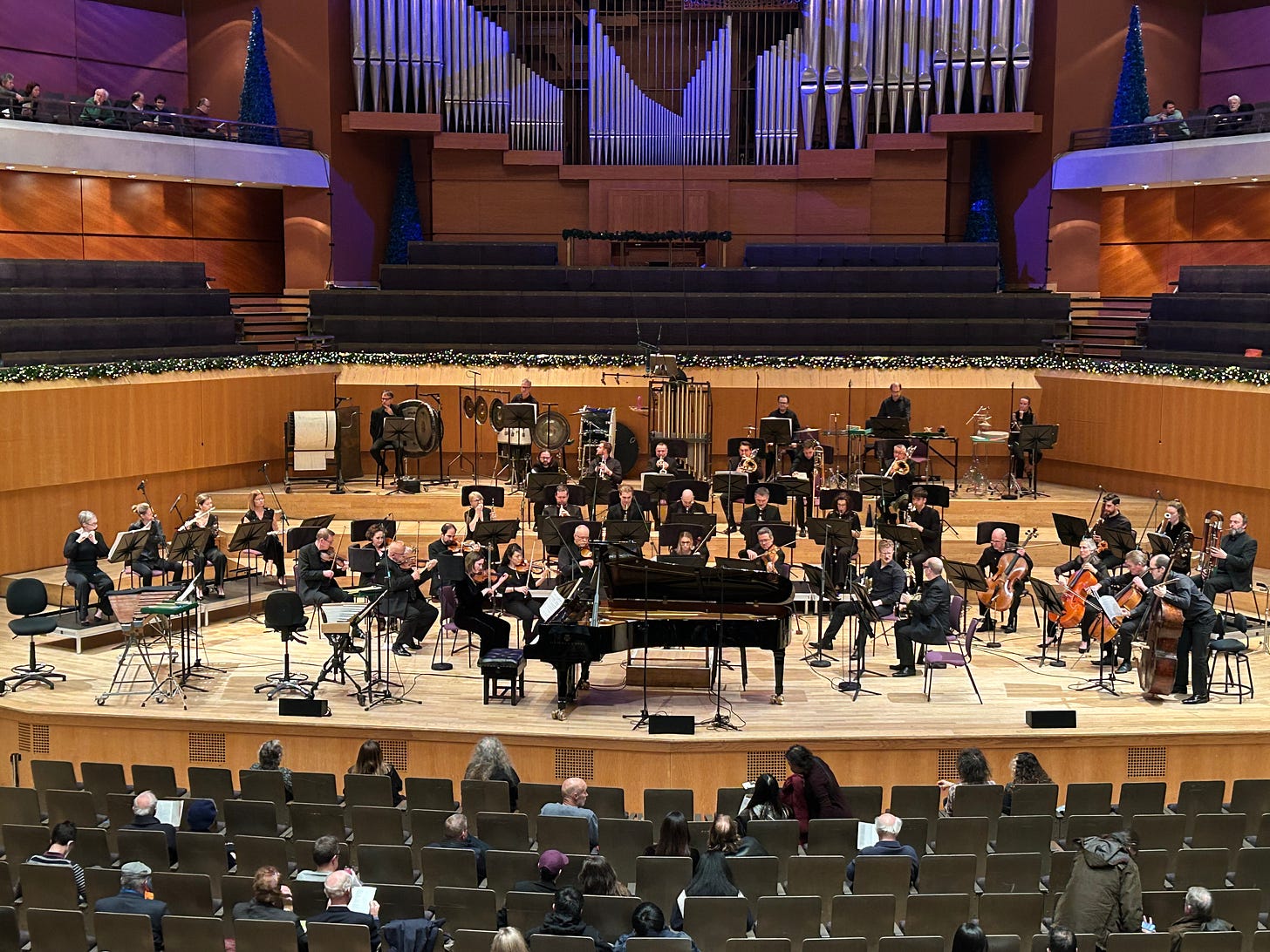Performance: Messiaen - Des canyon aux étoiles… ("From the Canyon to the Stars...")

12.12.24, Bridgewater Hall, Manchester
BBC Philharmonic Orchestra
Conductor. Ludovic Morlot
Soloists:
Steven Osbourne (piano)
Martin Owen (horn)
Paul Patrick (xylorimba)
Tim Williams (glockenspiel)
Olivier Messiaen’s longest orchestral work which was written between 1971 and 1974 is something of an oddity even in the annals of this composers work. A select orchestra and a group of soloists are required to play a piece in three parts and 12 sections. It is highly coloured and brightly scored and in places, exceptionally beautiful. However, a new listener will struggle to hear tunes or identify keys and will likely to be overwhelmed by the complexity of the score. All of us will be in great admiration of the poor souls who have to play it.
It was a very good performance with clear outlines and a host of little details I recalled from recordings though I must admit I don’t listen to this work often. I have heard it live before played by the Los Angeles Philharmonic on the baton of Gustavo Dudemel. That was a more satisfying introductory experience because the orchestra had commissioned a series of still photos projected behind the Orchestra to illustrate the locations which had prompted the composer’s thought.
The work was commissioned by Alice Tully to commemorate the bicentenary of the founding of the USA. However, Messiaen’s interest in the colours and geology of the canyons of Utah, which he visited in 1972, is also mixed with his love for ornithology. The whole score is suffused with birdsong mostly delivered by the piano. Steven Osbourne delivered these with exceptional power and accuracy.
There is a sense of wonder in the score which reflects the interstellar experience in these vast expenses but also a feeling of spiritual if not religious celebration of all of this Grainger. The pianist also has two sections of the piece which are entirely based on birdsong which is Both familiar and because of the instrument completely unfamiliar.
The conductor Ludovic Morlot has recorded this piece and I think that his experienced guiding hand was essential in reflecting the many phases, characteristics and tones of the piece more.
I couldn’t fault the soloists: they are in play for virtually all the sections. The orchestra - with full brass and winds, scant strings and enhanced percussion - including a geophone - were alert and committed to realising the composer’s very specific asks.
I didn’t expect the hall to be full for this work. But I’m so glad I went. The applause was raptorous and that was completely deserved. I think it is more taxing than a Wagner opera or the most detailed passion or mass. In fact, I think this is nearer to a quasi-religious experience than a simple act of hearing tunes, songs or easy harmonies.
I have to ask myself if it was on again next week would I go? I think on reflection particularly under these forces I would.
It is challenging listen but the rewards for listening are many and the process of listening is somehow edifying, testing, humbling and ultimately uplifting.


Comments